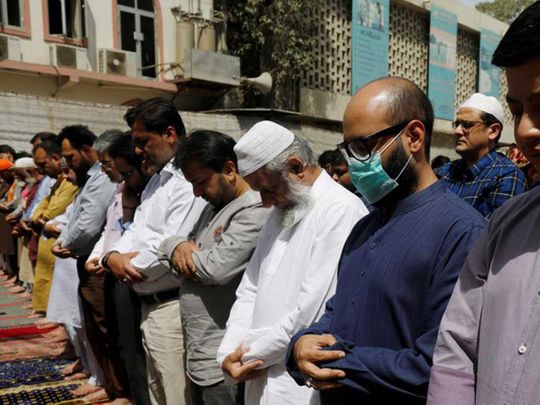
Islamabad: Pakistan reported nine deaths due to coronavirus over the past 24 hours, the highest single-day tally since early March.
Over 165 patients are currently in critical care across the country. The country last reported nine coronavirus-related deaths on March 7, according to official stats.
The COVID-19 infection has spiked in Pakistan after months as 872 confirmed cases were reported during the last day. The national COVID-19 positivity ratio was at 3.77 per cent in the last 24 hours, the National Institute of Health (NIH) said on Thursday.
At least 23,125 coronavirus tests were conducted in the last 24 hours. This week, Pakistan received four mobile laboratories from the US government to strengthen the capacity for COVID-19 testing and other communicable diseases.
Fresh health advisory issued
Pakistan’s central pandemic response body National Command and Operation Centre (NCOC), which was shut down after the threat of the pandemic receded, was restored when the first case of Omicron sub-variant BA.2.12.1 was reported on May 9.
With tourism expected to increase during the Eid Al Adha holidays, the NCOC has advised travellers to strictly follow COVID-19 guidelines while vacationing citing a spike in COVID-19 infections. Health Minister Abdul Qadir Patel also urged the masses to strictly adhere to the health advisory.
Travellers have been advised to wear masks, use hand sanitisers and avoid going to crowded places and maintain social distancing. All tourists are required to be fully vaccinated.
• People without face masks should not be allowed to enter prayer venues.
• Eid AI Adha prayers should be arranged in open spaces under strict COVID protocols. In case of any compulsion to offer prayers inside mosques, all windows and doors should be kept open for ventilation to minimize the chances of the spread of the virus.
• Two to three Eid prayers should be organized at a single venue with staggered timings to allow maximum people to offer prayers with COVID-19 protocols in place.
• All ulemas leading Eid prayers should keep sermons brief to discourage crowds from staying at one place for a long duration.
• Sick, elderly and young children should be discouraged from attending the Eid prayers.
The NCOC also said efforts would be made to encourage central and collective sacrifices through various public, private and community organisations, while ensuring adherence to the COVID-19 protocols of mask-wearing, social distancing and avoidance of crowds.








